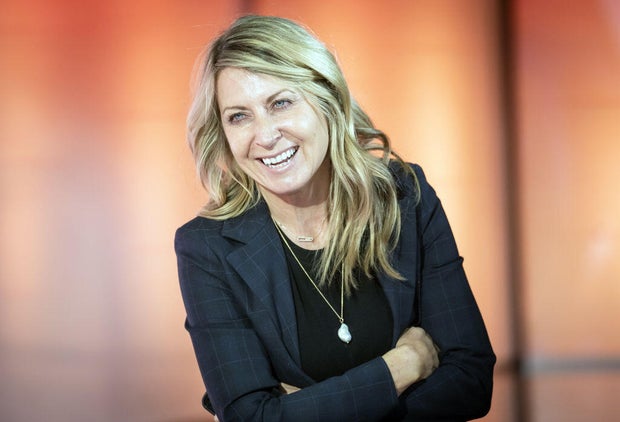The head of the BBC and its director-general of news resigned on Sunday after criticism of the broadcaster for its editing of President Trump's speech. BBC said CEO Tim Davie and news chief Deborah Turness announced their resignations on Sunday.
The British public broadcaster was criticized for the way it edited Trump's speech on January 6, 2021, before protesters attacked the Capitol in Washington.
Excerpts of the speech were included in a documentary about the high-profile Panorama program and critics said they were erroneously edited, leaving out a section in which Mr Trump said he wanted supporters to demonstrate peacefully.
Hannah Mackay/AP
In a letter to staff, Davy said leaving his job after five years “is entirely my decision.”
“Overall the BBC is doing well but some mistakes have been made and as director-general I must take full responsibility,” Davie said, adding that he was “working with the Board on precise timelines to ensure an orderly transition to a successor in the coming months.”
Turness said the controversy over the Trump documentary had “reached a stage where it was damaging to the BBC, an institution I love. As director general of the BBC's news and current affairs service, the responsibility falls on me.”
“While mistakes have been made, I want to be absolutely clear that recent claims that BBC News has institutional bias are wrong,” she added.
Danny Lawson/PA Images via Getty Images
Speaking to some BBC journalists outside her home in London on Monday morning, Turness repeated that she resigned “because the responsibility lies with me. But I would like to make one thing clear: BBC News is not institutionally biased. That's why it's the world's most trusted news provider.”
Asked about the White House's allegations of BBC corruption, Turness said: “Our journalists are not corrupt and I will support their journalism,” adding that she was confident “a story will come out” about how mistakes were made in reporting on topics such as Mr Trump, anti-Semitism and women's rights.
In a message to Truth Social On Sunday, Trump thanked the Telegraph newspaper for “exposing these corrupt 'journalists'.”
“These are very dishonest people who tried to get on the scales of the presidential election. On top of everything else, they are from a foreign country, which many consider our number one ally. What a terrible thing for democracy!” – he said.
Pressure on the broadcaster's senior management increased after Britain's Daily Telegraph newspaper published parts of a dossier compiled by Michael Prescott, who was hired to advise the BBC on standards and guidelines.
As well as Mr Trump's editing, the dossier criticized the BBC's coverage of transgender issues and raised concerns about alleged anti-Israel bias in the BBC Arabic service.
Lisa Nandy, the UK culture secretary, thanked Davy “for his many years of service to public service broadcasting”.
“He has led the BBC through a period of significant change and helped the organization meet the challenges it has faced in recent years,” she said in a statement on X. “Now more than ever, the need for trustworthy news and high-quality programming is essential to our democratic and cultural life, and our place in the world.”
The BBC faces more scrutiny than other broadcasters, as well as criticism from its commercial rivals, due to its status as a national institution, funded by an annual license fee of £174.50 ($230) paid by all households with a television.
It is also required by its charter to be impartial in its operations, and critics are quick to point out that they believe it has failed.








